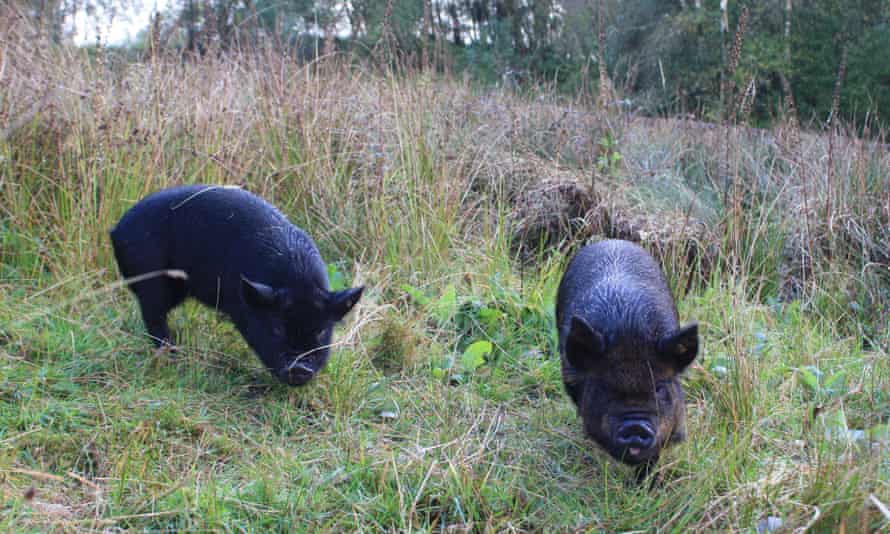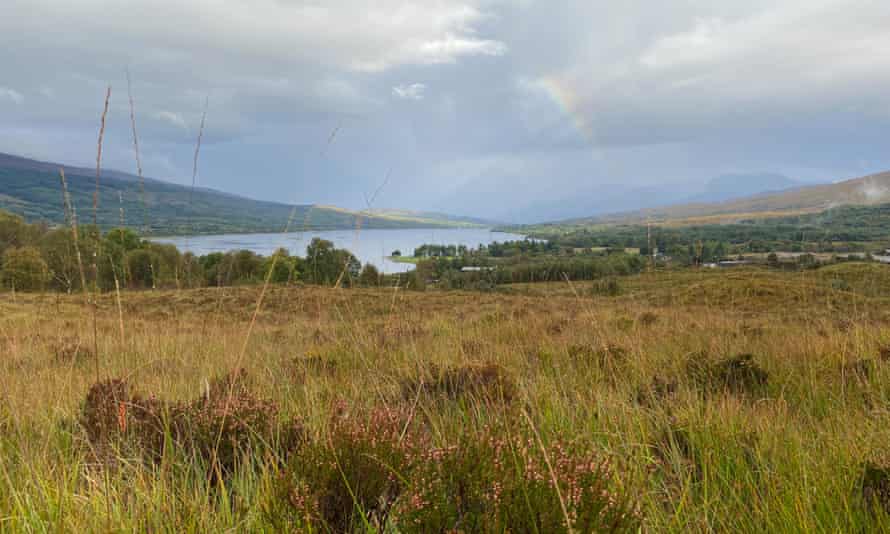Country diary: These grazing pigs are no match for wild rushes
Duisky, Highland: Kune kune pigs need grass, fruit and vegetables, but rushes are wiry and inedible

The south boundary of our croft runs along a wide shelf of moorland, 150ft above sea level. Here, high above Loch Eil, your boots stand in bog myrtle and heather. But cross a stone wall, wade through bentgrass on the turn, and you will plunge, down and down through patches of woodland and pasture, until you level out at the shore. You might notice, as you brace your knees against the steeper slopes, that horizontal ground is scarce.
So we were not spoiled for choice when we fenced off an area for our new arrivals, to add to the hens, polytunnel and veg patch: a pair of gingery-black kune kune piglets. Still, I feel guilty – all around their wee field is loose, luscious grass, but the flatter land within is thick with rushes.
Kune kunes are grazing pigs; they need grass, fruit and vegetables. Rushes, however, are wiry and inedible; few species of livestock will eat them. I harvest buckets of kale, topping them up with handfuls of almost-ripe acorns. The piglets rootle in among the tussocks, small black shapes below the swaying rush tips. My kids have named them Ninja-boy and Ginger-boy. When I call, Ninja and Ginger screech towards the fence, plaintive in their displeasure, snouts rooting out the bounty I must toss in to them.

As our climate becomes wetter, rushes are an increasing problem for crofters and farmers – one paper showed an 82% increase in rush frequency between 2005 and 2018. Hard rush (Juncus inflexus) thrives in consistently damp ground such as this. Repeatedly knocking them back to let other plantlife grow is just one strategy used to manage their spread.
This is the second group of kune kunes to dig here. The last pigs were much bigger when they came in, and so were quick to trample the older rushes, getting to the softer roots below and leaving the soil briefly clear. A hopeful flush of greenery appeared on the dark earth the following spring. But closer inspection revealed it to be the verdant shine of rush shoots.
Soon they towered almost a metre high again, a dense mat of spears brandishing clusters of seed capsules. Those seeds can live for decades, waiting for the right conditions to germinate. They do not have to wait long here.